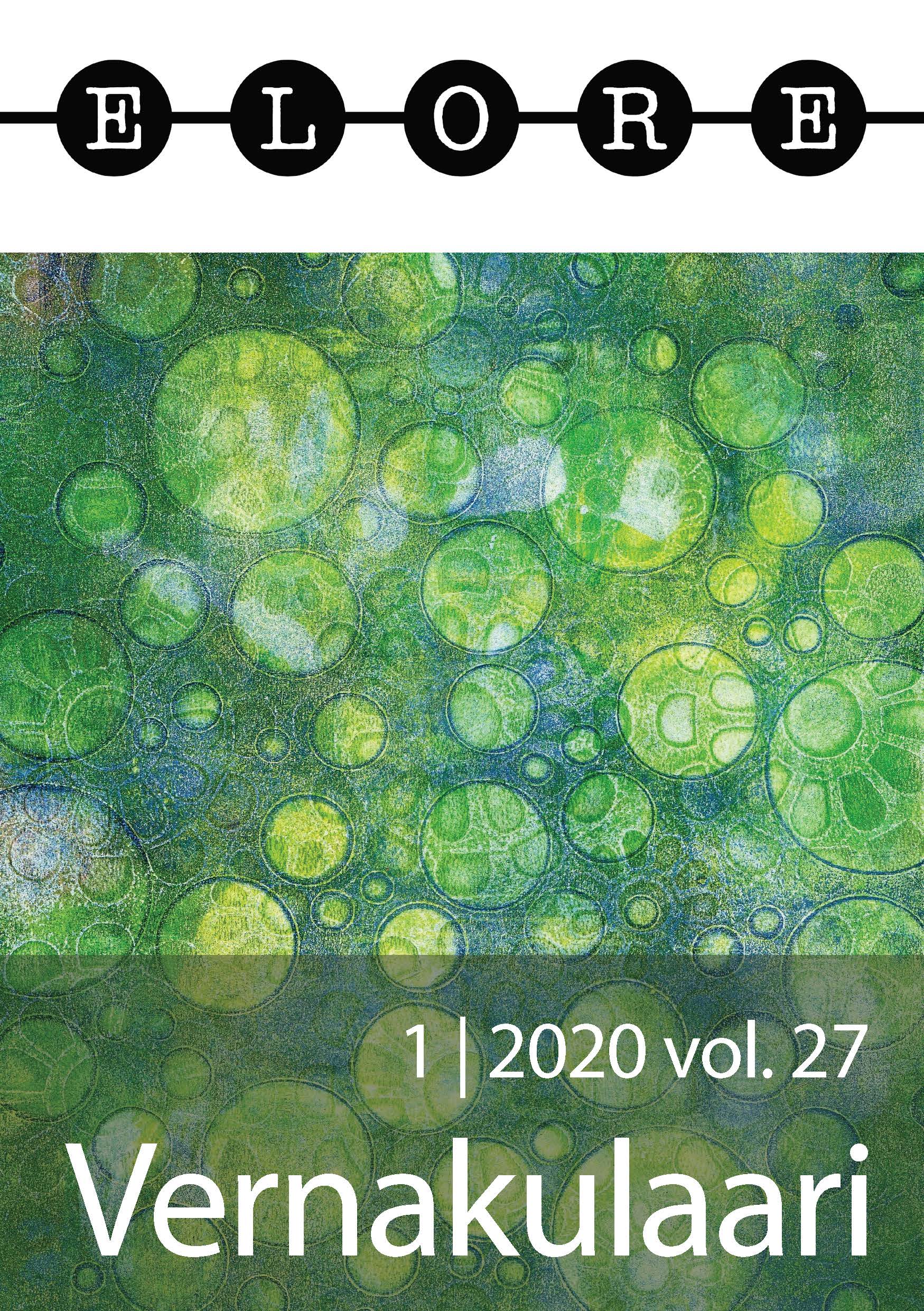How did folk become vernacular?
The concept of folk in Finnish folklore studies, history of literacy, and self-taught writers from the 1820s to the 2010s
DOI:
https://doi.org/10.30666/elore.89069Abstract
This article discusses the concept of ’folk’ in relation to the history of Finnish literacy studies and folklore studies in the long period of the 1820s to the 2010s. Based on four scholarly case studies, it analyses how the term folk has been formulated and used during the given period. The case studies are: the early 19th century publications of folk poems; the first histories of literacy in Finnish; the use of the concept of folk in Finnish folklore studies and finally, the recent studies of the 19th century self-taught writers. The article outlines the changing understandings of the concept of ’folk’ and how these shifts reflected significant social, cultural, political, and scientific changes in Finland. Scholarly representations of ’folk’, ’national’, ’authentic’ and finally, ’vernacular’, were the repercussions for broadening the contours in the study of powerless social groups. Due to new source materials and methods, the concept of ’folk’ as referring to rural groups of oral culture, or with people from the past to a more widening meaning of ’folk’ as any kind of past time or current group of people that continuously shares customs, rituals or ideas, shifted. Although ’vernacular’ as the term was not used in the Finnish language and consequently in the scholarship until the 2000s, implicit understanding about it, however, was obtained.

Downloads
Published
How to Cite
Issue
Section
License
The journal follows Diamond Open Access publishing model: the journal does not charge authors and published texts are immediately available on the Journal.fi service for scientific journals. By submitting an article for publication on Elore, the author agrees, as of September 2024, that the work will be published under a CC BY 4.0 licence. Under the licence, others may copy, transmit, distribute and display the copyrighted work and any modified versions of the work based on it only if they attribute the licence, the original publication (link or reference) and the author as the original author. Any modifications made must be acknowledged.
Copyright of the texts remains with the authors, and self-archiving (Green OA) of the published version is allowed. This also applies to texts published before September 2024. The Green OA publication must include Elore's publication details.
The metadata for published articles is licensed under Creative Commons CC0 1.0 Universal.





